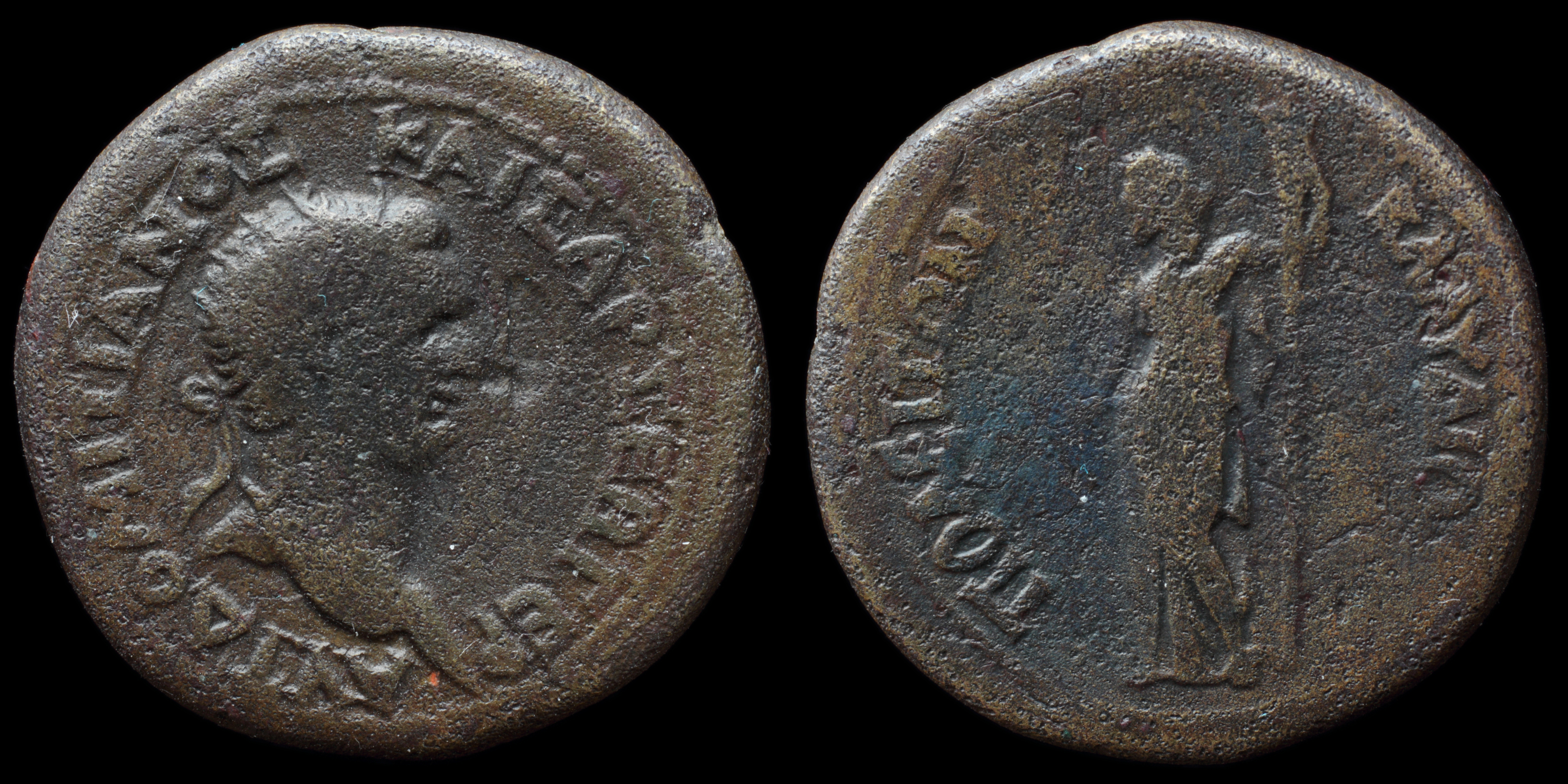Bithynium or Bithynion was a city in the interior of Bithynia, lying above Tius, as Strabo describes it, and possessing the country around Salone or Salon, which was a good feeding country for cattle, and noted for its cheese. It was the capital of Salone district.
The settlement was part of one of the Hittite kingdoms around 2000 BC and later 500 BC it became one of the leading cities of the Kingdom of Bithynia (279 BC - 79 BC). Bithynium was the birthplace of Antinous, the favourite of Hadrian, as Pausanius tells us, who adds that Bithynium is beyond, by which he probably means east of, the river Sangarius; and he adds that the remotest ancestors of the Bithynians are Arcadians and Mantineis. In this case a Greek colony settled here. Bithynium was afterwards called Claudiopolis, a name which it is conjectured it first had in the time of Tiberius; but it is strange that Pausanias does not mention this name. Dio Cassius speaks of it under the name of Bithynium and Claudiopolis also. It later bore the name Hadriana after the emperor. The names of Claudiopolis and Hadriana appear on coins minted here.
The town was Christianised early and became an archbishopric. An archbishop suffered martyrdom under Diocletian. No longer a residential see, it remains a titular see of the Roman Catholic Church under the name Claudiopolis in Honoriade. A former titular see under the name of Claudiopolis in Bithynia was suppressed.
The city was known under Byzantine rule as Hadrianopolis. Turkmens migrating west settled the city in the 11th century and it was referred to as Boli, Turkicized short for the Greek Polis 'city'. It was recaptured by Byzantines in 1097 but was conquered by the Great Seljuk Sultanate of Rum in 1197. In 1325, the town was conquered by the Ottoman Empire, becoming known under the present Turkish name (sometimes called Bolou or Boli).
The settlement was part of one of the Hittite kingdoms around 2000 BC and later 500 BC it became one of the leading cities of the Kingdom of Bithynia (279 BC - 79 BC). Bithynium was the birthplace of Antinous, the favourite of Hadrian, as Pausanius tells us, who adds that Bithynium is beyond, by which he probably means east of, the river Sangarius; and he adds that the remotest ancestors of the Bithynians are Arcadians and Mantineis. In this case a Greek colony settled here. Bithynium was afterwards called Claudiopolis, a name which it is conjectured it first had in the time of Tiberius; but it is strange that Pausanias does not mention this name. Dio Cassius speaks of it under the name of Bithynium and Claudiopolis also. It later bore the name Hadriana after the emperor. The names of Claudiopolis and Hadriana appear on coins minted here.
The town was Christianised early and became an archbishopric. An archbishop suffered martyrdom under Diocletian. No longer a residential see, it remains a titular see of the Roman Catholic Church under the name Claudiopolis in Honoriade. A former titular see under the name of Claudiopolis in Bithynia was suppressed.
The city was known under Byzantine rule as Hadrianopolis. Turkmens migrating west settled the city in the 11th century and it was referred to as Boli, Turkicized short for the Greek Polis 'city'. It was recaptured by Byzantines in 1097 but was conquered by the Great Seljuk Sultanate of Rum in 1197. In 1325, the town was conquered by the Ottoman Empire, becoming known under the present Turkish name (sometimes called Bolou or Boli).
Modern location: Bolu, Turkey
(1)
Domitian

An
AE
unit
struck 81-96 AD
in
Claudiopolis (Bithynia)
Obverse: radiate head right; ΑΥΤ ΔΟΜΙΤΙΑΝΟΣ ΚΑΙΣΑΡ ΣΕΒ ΓΕΡ
Reverse: Demeter standing left, holding corn-ears and long sceptre; ΚΛΑΥΔΙΟΠΟΛΕΙΤΩΝ
Diameter:
24.5 mm
Die Orientation: -
Weight: 10.3 g
Die Orientation: -
Weight: 10.3 g
No notes for this coin
RPC II, 695
